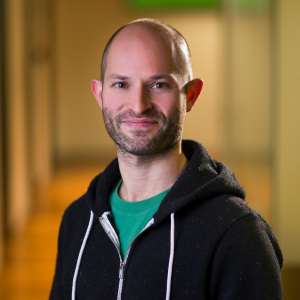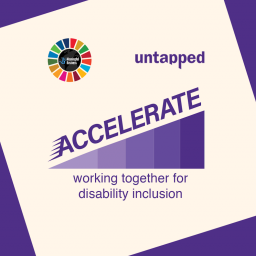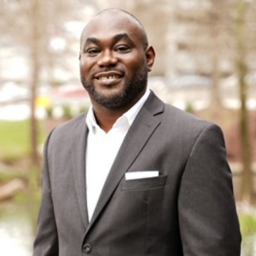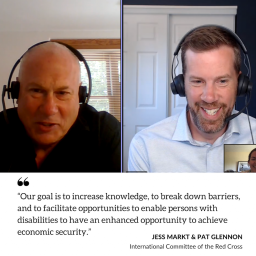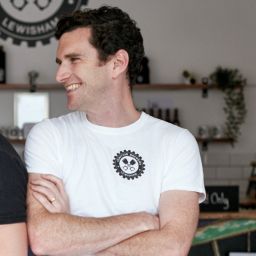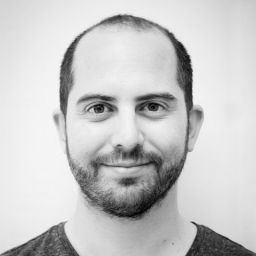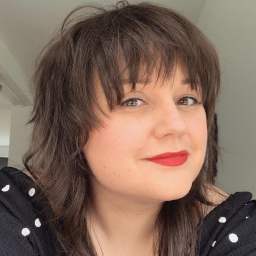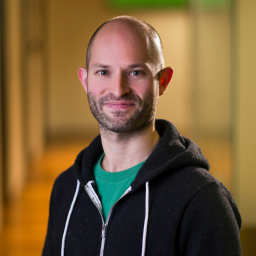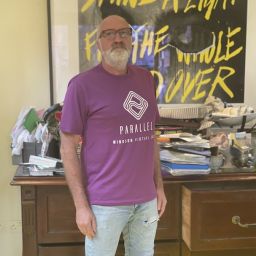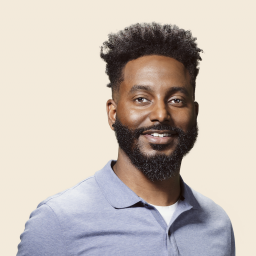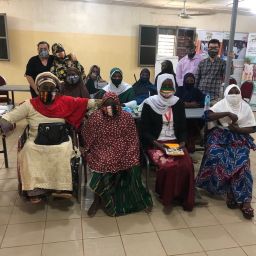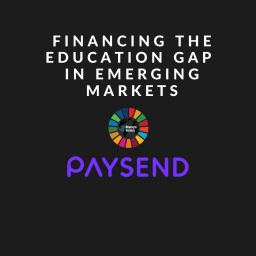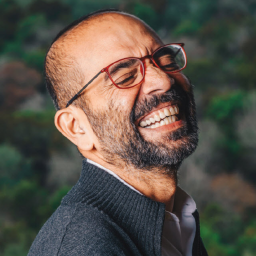Tell us a bit about your background
I studied fashion design at the London School of the Istituto Marangoni, graduating in 2008 with a 1st class degree. My first job was with Goddiva and I have since worked for brands including Jack Wills, All Saints, Sweaty Betty and Victoria Beckham.
Three years ago I became a freelancer. This gave me the flexibility I needed to properly manage my health, and I now work with fashion start-ups including my own – Unhidden.
How did you start Unhidden?
My symptoms made high street clothes uncomfortable to wear, so I either lived in clothes that hurt or pyjamas! However, it wasn’t until a 10-day hospital stay in 2016 that I considered adaptive wear.
In the bed opposite me was a woman who had survived ovarian cancer, but the chemo had destroyed her bowels. She regularly had to take off all her clothes for medical reasons; it was humiliating for her and I couldn’t bear to see it.
I began to research adaptive wear and discovered there was very little out there, so I decided to start designing it myself. At first, I juggled developing the business with a full-time position. When it became impossible, I took a leap of faith and left my job.
What is the problem you are trying to solve?
In 2016 Stephanie Thomas, creator of Cur8able said, “We have more clothing in stores for dogs than we do for people with disabilities.” As a disabled person working in the fashion industry, I can’t just sit back and expect someone else to solve the problem – I don’t have the personality to do nothing.
Until very recently clothing designed for disabled people has been aimed at older customers or was based on a carer’s perspective. It certainly wasn’t fashionable or sustainable.
Unhidden is an adaptive and sustainable fashion brand, designed for comfort and practicality, to be worn by wheelchair users, amputees, people with gastrointestinal conditions and a range of other disabilities.
The clothes are made in Bulgaria at a factory owned and run by women, using deadstock cloth (left over fabrics of other fashion houses usually destined for landfill.)
Four years and a lot of hard work after the initial idea, I finally launched my first collection in 2020.

Victoria Jenkins, Founder, Unhidden Clothing
What’s next for Unhidden?
We will be increasing our focus on sustainability and affordability – to reduce waste and ensure no-one is excluded from accessing clothing that works for their body and gives them dignity and self-expression.
Our clothing is made to order and is out of reach of some people. We are developing a solution for customers to have existing clothing adapted by a network of seamstresses, which we hope to expand to include disabled machinists, providing flexible home-based work. We will also be holding workshops teaching customers how to adapt their own clothing.
On May 20th we will have a pop-up shop on Oxford Street, making us the first adaptive brand sold on a London high street. Media interest has been overwhelming. I hope it will raise awareness for Unhidden and prompt the rest of the fashion industry to be more inclusive.
What’s your biggest challenge right now?
Finances are a huge challenge. Launching a new fashion brand requires a lot of investment and, with my freelance work drying up due to the pandemic, I have had to be very creative and resourceful. This has included using Kickstarter to support the launch my collection and I am writing a book to help build awareness and reward backers.
What are the skills that you developed living with a disability that have helped you as an entrepreneur?
Number one is humour! After that, remaining calm under pressure, multitasking and being organised. I have really stepped into my creativity in the last couple of years. Although this can also be a problem. I am full of ideas, all of which could be a business in themselves!
What are the most important lessons you have learnt?
Learning to accept failure has been my biggest lesson. I have also had to develop the ability to quickly respond to setbacks and change. My ability to be creative helps with this and I am really enjoying the journey.
What advice do you have for disabled people thinking of setting up their own business?
Lots!
- Be passionate about it. You will need this when it gets tough and when you have to convince others to care
- Treat yourself like your own dream boss and create boundaries. Don’t work into the night if you don’t need to and add a note to your signature to let people know emails may not immediately be responded to. These little things will help make the rest easier
- Make sure you have savings and know where to go for grants and investments
- Have a mentor – even if it is a friend to do a weekly check-in to help keep you on track and talk through what is and isn’t working
- I also did a business course. Seeing people from corporate backgrounds respond to my ideas really helped my confidence and motivation when things get tough.
What is your vision for the fashion industry?
I want disabled people to have greater choice to express themselves through clothes that are practical, comfortable and stylish, as well as sustainable.
Things have come a long way, with global brands such as Tommy Hilfiger launching adaptive ranges as well as independent brands like ABL Denim, and Ffora, who have created a great range of bags, purses and other accessories specifically for wheelchair users. However, there is still a long way to go. There are one billion disabled people in the world and the spending power of disabled people in the UK alone is worth about £249bn. That is a lot of potential customers the fashion industry is ignoring.
Inclusive fashion will only become a reality if there are more people working in the industry. Fashion brands needs to do what they do best and apply their creativity to make that happen.
For more information on Victoria and her debut collection visit the Unhidden website.
___
TO JOIN THE ‘Accelerate’ COMMUNITY of leaders championing disability inclusion globally, APPLY TO BECOME A MEMBER OF MEANINGFUL BUSINESS HERE


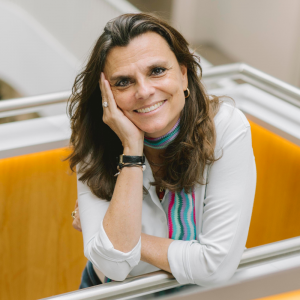
![Introducing Accelerate - Working Together for Disability Inclusion Accelerate_social_tile_1d[4]](https://meaningful.business/wp-content/uploads/2021/03/Accelerate_social_tile_1d4-300x300.png)
